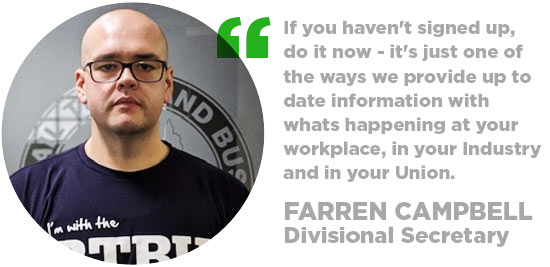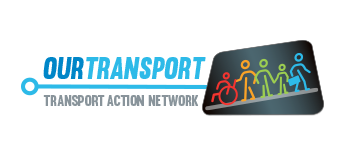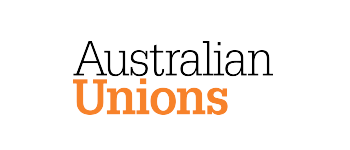Sydney Trains COVID-19 Taskforce Update
Your Union is committed to protecting the health and safety of Members and the community through these uncertain and challenging times.
As such, your Locomotive Division Representatives continue to meet twice weekly with Sydney Trains Train Crew Executive as a dedicated COVID-19 Taskforce to raise and address concerns of Members on the frontline.
Key areas of agreed action included:
- Increased scope and frequency of cleaning as well as the development of an easily accessible cab cleaning schedule.
- Proper implementation of and compliance with, social distancing within all areas of the workplace. These recommendations have also been applied to all aspects of training. Training will continue in compliance with social distancing requirements. “On Train” training has been rostered 1 on 1 to accomplish this.
- Access and availability of essential hygiene supplies including hand sanitiser, hard surface wipes disposable gloves (both latex and non-latex).
- Long-overdue Crew Cab Cleaning Standards (both “general” and “extraordinary”) to be developed, implemented and maintained.
Your Union will continue to address training issues, both Continuation and IET, through regular dedicated training forums with Locomotive Division and Business representatives. A training specific risk assessment is scheduled for early next week utilising HSR’s; Members will be advised of the outcome.
The Taskforce has agreed to utilise HSR’s, RTBU Reps and Safety Professionals to assess and implement social distancing recommendations within meal rooms, stand-by locations and other high traffic areas. The Locomotive Division has nominated Divisional Health and Safety Officer Keith McMahon who will be assisted by local HSR’s. This began on Friday 27 March.
The Locomotive Division has received confirmation on the following Member issues:
- Special Leave is paid at the same rate as Sick Leave.
- Employees required to self-isolate when returning from abroad are entitled to receive Special Leave for the period of isolation. Special Leave also applies when the required isolation occurs while the employee is still on leave.
- Employees scheduled, but yet to commence, periods of “ad-hoc” leave (Public Holidays and Long Service Leave) may request to have that leave cancelled and return to their roster.
Members are reminded that nothing has changed in regards to your rights to enforce cab cleanliness and not using overcrowded meal and standby rooms taking into account “social distancing” and increased cleaning requirements.
Members should continue to advise their supervisor when issues occur.
We have included the following as general information for Members.
The following is current NSW Government Advice:
What is social distancing?
Social distancing means we reduce the number of close physical and social contacts we have with one another.
When social distancing actions are combined with good personal hygiene measures the spread of a pandemic through the community can be slowed. This helps protect the most vulnerable members of the community and reduces the impact of the pandemic on essential, life-saving health services.
Social distancing is an effective measure, but it is recognised that it cannot be practiced in all situations and the aim is to generally reduce potential for transmission.
While practicing social distancing, people can travel to work (including public transport). For non-essential activities outside the workplace or attendance at schools, universities and childcare – social distancing includes:
- Avoiding crowds and mass gatherings where it is difficult to keep the appropriate distance away from others
- Avoiding small gatherings in enclosed spaces, for example family celebrations
- Attempting to keep a distance of 1.5 metres between themselves and other people where possible, for example when they are out and about in public place.
- Avoiding shaking hands, hugging, or kissing other people.
- Avoiding visiting vulnerable people, such as those in aged care facilities or hospitals, infants, or people with compromised immune systems due to illness or medical treatment.
The following has been taken from current Safe Work NSW COVID19 advice and guidance for workplaces;
Undertake WHS risk management regarding work activities / work design Employers must, in consultation with workers and/or their HSRs:
- identify and assess the likely risks at the workplace and those associated with the way work is performed (eg: are workers/customers more than 1.5 metres away from each other; layout of workstations; design of work activities; etc)
- implement suitable control measures to eliminate or minimise risks, this may include encouraging social distancing through flexible working arrangements, reducing nonessential face to face meetings/gatherings and promoting the use of virtual communication channels (telephone/video)
- Expert advice may be required for high risk work environments or tasks
The control measures being used must be regularly reviewed and updated as required:
- a good way to do this is to practice, test and evaluate intervention measures during this early stage, eg: practice social distancing measures and evaluate implementation
Workers must co-operate with their employer in implementing risk control measures and must take all reasonably practicable steps to ensure they don’t do anything that creates or increases a risk to the health and safety of themselves or others.
Regular updates will be issued via Footplates, Locoexpress and a soon to be released Locoexpress COVID-19 regular electronic newsletter which will include an overview of what’s happening across the full Locomotive Division Membership.



